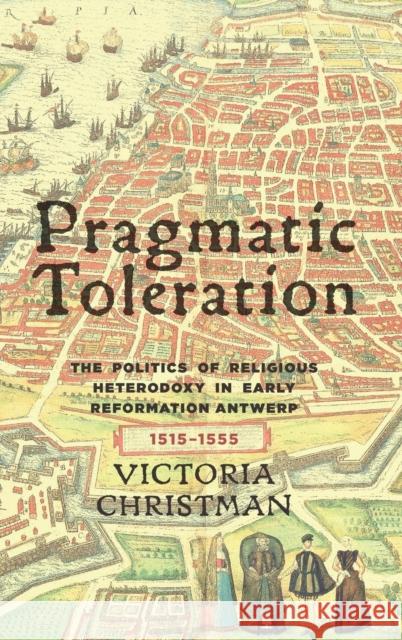Pragmatic Toleration: The Politics of Religious Heterodoxy in Early Reformation Antwerp, 1515-1555 » książka
Pragmatic Toleration: The Politics of Religious Heterodoxy in Early Reformation Antwerp, 1515-1555
ISBN-13: 9781580465168 / Angielski / Twarda / 2015 / 256 str.
Pragmatic Toleration: The Politics of Religious Heterodoxy in Early Reformation Antwerp, 1515-1555
ISBN-13: 9781580465168 / Angielski / Twarda / 2015 / 256 str.
(netto: 392,45 VAT: 5%)
Najniższa cena z 30 dni: 410,37
ok. 30 dni roboczych
Dostawa w 2026 r.
Darmowa dostawa!
This study takes as its focus the early-sixteenth-century metropolis of Antwerp in the southern Low Countries. Reformation thought made swift inroads into this community, not least via the city's active trade routes and renowned publishing houses. As part of his patrimonial inheritance, Charles V was keen to quash reforming thought in Antwerp, and constructed a secular inquisition in an attempt to achieve this aim. But the city fathers of Antwerp fought all of Charles's efforts to curtail the religious activities of their inhabitants, albeit for reasons that were dominated by economic and social rather than religious concerns. Via a series of case studies, this book documents the development of various practices of pragmatic toleration on the part of the Antwerp fathers as they defended their heterodox inhabitants. It seeks to understand the motivations underlying the councilors' lenient treatment of heterodoxy in their city, and attempts to answer the question of how we are to understand such pragmatically tolerant behavior as part of the broader history of religious tolerance in the Christian West. The book challenges the notion that religious tolerance was a linear development, and argues that practices of religious toleration first emerged not as the outgrowth of ideological beliefs about human rights, but rather as a practical consequence of religious coexistence. Victoria Christman is associate professor of history at Luther College.











